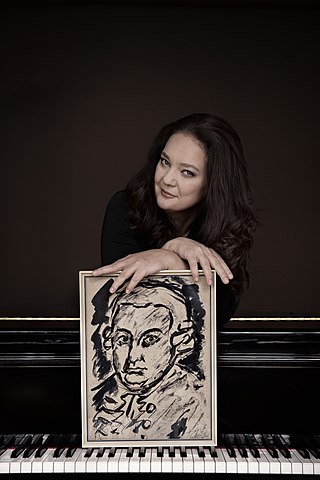Related Research Articles

Johann Nikolaus Forkel was a German musicologist and music theorist, generally regarded as among the founders of modern musicology. His publications include the two-volume Allgemeine Geschichte der Musik, among the first attempts at a history of Western music and the "ground-breaking music bibliography" Allgemeine Litteratur der Musik. He also authored Johann Sebastian Bach: His Life, Art, and Work, the first substantial survey on the life and works of Johann Sebastian Bach.

Johann Ludwig Bach was a German composer and violinist.

Gottfried Heinrich Stölzel was a German composer of the Baroque era.
As Kapellmeister at Hamburg from 1768 to 1788, Carl Philipp Emanuel Bach composed 21 settings of the Passion narrative and 1 Passion oratorio.
Since the 18th century Berlin has been an influential musical center in Germany and Europe. First as an important trading city in the Hanseatic League, then as the capital of the electorate of Brandenburg and the Prussian Kingdom, later on as one of the biggest cities in Germany it fostered an influential music culture that remains vital until today. Berlin can be regarded as the breeding ground for the powerful choir movement that played such an important role in the broad socialization of music in Germany during the 19th century.

Between 1716 and 1767, Georg Philipp Telemann wrote a series of Passions, musical compositions reflecting on Christ's Passion – the physical, spiritual and mental suffering of Jesus from the hours prior to his trial through to his crucifixion. The works were written for performance in German churches in the days before Easter. A prolific composer, Telemann wrote over 40 Passions for the churches of Hamburg alone, of which 22 have survived according to the present state of research. He also wrote several Passion oratorios. Unlike the Passions intended for liturgical performance, they were not closely set to the literal text of the Gospels.
Georg Michael Telemann was a German composer and theologian.
As Thomaskantor, Johann Sebastian Bach provided Passion music for Good Friday services in Leipzig. The extant St Matthew Passion and St John Passion are Passion oratorios composed by Bach.
The Weimarer Passion, BWV deest, is a hypothetical Passion oratorio by Johann Sebastian Bach, thought to have possibly been performed on Good Friday 26 March 1717 at Gotha on the basis of a payment of 12 Thaler on 12 April 1717 to "Concert Meister Bachen". It is one of several such lost Passions. Both the text and music are lost, but individual movements from this work could have been reused in latter works such as the Johannes-Passion. At one time, it was thought that the work set chapters 26 and 27 of the Gospel of Matthew to music, with interspersed chorales and arias, but current consensus is that it is possible that the text reflected a synopsis of two or more Gospel texts, as well as the interspersed chorales and arias.

Frieder Bernius is a German conductor, the founder and director of the chamber choir Kammerchor Stuttgart, founded in 1968. They became leaders for historically informed performances. He founded the Stuttgart festival of Baroque music, "Internationale Festtage Alter Musik", in 1987, and is a recipient of the Edison Award (1990), Diapason d'Or (1990) and the Order of Merit of the Federal Republic of Germany (1993).

The Magnificat, Wq 215, H.772, by Carl Philipp Emanuel Bach is a musical setting of the biblical canticle Magnificat as an extended composition for voices and orchestra in nine movements, composed in Berlin in 1749. It is the composer's first extant major choral composition.

The BWV Anh., is a list of lost, doubtful, and spurious compositions by, or once attributed to, Johann Sebastian Bach.

Geistliche Oden und Lieder, also known as Gellert Oden, is a collection of songs by Carl Philipp Emanuel Bach with texts by Christian Fürchtegott Gellert. Originally published in 1758, Bach's work enjoyed continuous popularity for several decades and influenced numerous composers, most importantly Ludwig van Beethoven, who composed his own settings of six of Gellert's poems.

Ana-Marija Markovina is a Croatian classical pianist. She lives in Cologne with her husband, the psychologist Helmut Reuter, and their daughter.
August Kohn was a German violinist and composer of the late Baroque to Classical transition era.

Jean-Claude Zehnder is a Swiss organist in church and concert, harpsichordist, and musicologist. In research and playing, he is focused on Baroque music, and has played and recorded at historic organs in Europe. He led the department for organ at the Schola Cantorum Basiliensis from 1972 to 2006. His publications include books and music editions, such as organ works by Johann Sebastian Bach.
Annegret Rosenmüller is a German musicologist.
Hans-Günter Ottenberg is a German musicologist and teacher.
Willy Focke is a German composer.
References
- ↑ Ulrich Leisinger's Editorial Board on the website of Carus-Verlag, retrieved on 13 April 2020.